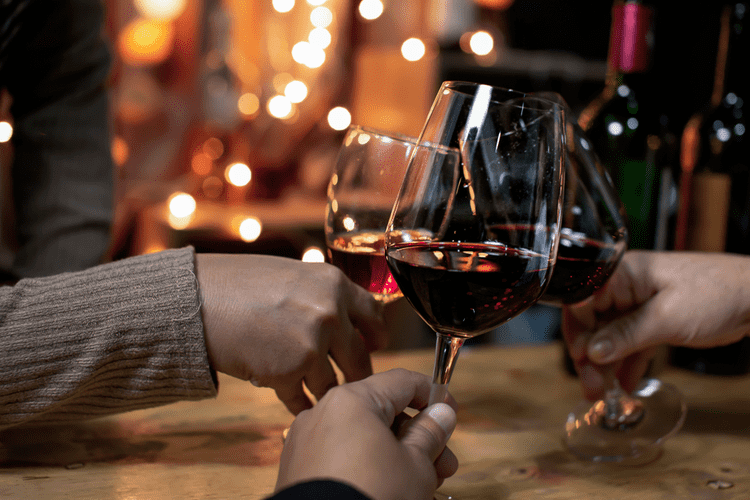Heavy drinkers can experience severe and sometimes life threatening symptoms when reducing alcohol intake, so it’s important to have medical support. While psychotherapy is the primary approach for co-treatment of alcohol use and anger management, medications like mood stabilizers and https://thecaliforniadigest.com/top-5-advantages-of-staying-in-a-sober-living-house/ those used to treat substance withdrawal may also be part of your treatment plan. According to a review from 2017, alcohol is more likely to cause personality shifts related to negative emotions, but that doesn’t mean anger is the most common emotional experience while drinking.

Does Alcoholic Rage Syndrome Lead to Domestic Violence?
- If some time goes by and you still feel the same way, you can always give a different coping technique a try or explore a new hobby.
- If you have quit drinking but are still struggling with the negative and destructive attitudes and feelings you had during active addiction, you may be dealing with what’s called dry drunk syndrome.
- Cognitive behavioral therapy is another path, available in person or online.
Walking away is difficult for many targets, but if the addict is hurting you, you must distance yourself. Often these episodes will only escalate as the problems in the alcoholic’s life will only grow worse as they try harder and harder to avoid the root cause. When someone becomes addicted to a substance, in this case, alcohol rehab is usually necessary because alcohol becomes something they physically need. They will often blame innocent bystanders for provoking them to anger and meltdown into fits of rage over the smallest things because they demand that everything be their way. Alcoholics do this because they are trying to self-regulate by controlling their external world to make up for their internal turmoil. Having someone close to you, whether it is a friend, a romantic partner, a family member, or even a parent who struggles with addiction, is challenging.
The Difference Between Anger and Aggression
Outpatient treatment is less intensive than inpatient treatment or partial hospitalization programs. They are best for people who have a high motivation to recover, but cannot leave their responsibilities at home, work, or school. Most programs help set up your aftercare once you complete the inpatient portion of your treatment.
Addiction Treatment Programs

Sometimes the shame of facing the things they did while intoxicated causes them to start drinking again, proliferating a vicious circle of substance use and abuse. “Keep in Top 5 Advantages of Staying in a Sober Living House mind that any amount of drinking can influence emotions and behavior,” O’Brien says. Alcohol can fuel rage or aggressive behaviors even when a person isn’t intoxicated.
- It is worth noting that alcohol-related violence is responsible for a significant number of violent incidents worldwide.
- Because of the established link between aggression and alcohol, co-treatments have been developed that can also address anger while drinking.
- It is best to choose a time when your friend is thinking clearly and seems receptive.
- People who tend to ignore the future consequences of their behavior, or score low on the Consideration of Future Consequences (CFC) scale, have been found to display more aggression.
How Anger and Alcohol Contribute to Domestic Violence
When a heavy drinker quits drinking, their brain must adjust to the chemical damage that alcohol has caused. Originally coined by the creators of Alcoholics Anonymous, dry drunk syndrome can have a negative impact on the process of giving up drinking both physically and mentally. You also have to explore, deeply and honestly, patterns and behaviors in your life that contribute to your alcohol use. When you choose to stop drinking, you’re taking a significant first step.

The tendency to avoid looking ahead and assessing consequences for one’s actions is a risk factor for aggressive behavior while drinking. That may sound obvious, and it’s a theory backed by a small, interesting 2012 study from Ohio State University (9). In summary, heavy drinking or chronic drinking alters brain chemistry in the short and long term. For these reasons, some people may exhibit nervousness, outbursts, aggression, and even violence while intoxicated or during withdrawal. By taking the proactive steps mentioned above, you can pave the way towards lasting recovery and a healthier lifestyle. There are many organized programs that provide the support of peers, usually through frequent meetings.
- Most of these treatments come from the framework of cognitive behavioral therapy (CBT).
- Managing and understanding the triggers for this aggressive behavior is critical when dealing with an angry inebriated individual especially when attempting to diffuse the situation.
- Once diagnosed, there are various treatment options available to manage this condition effectively.
